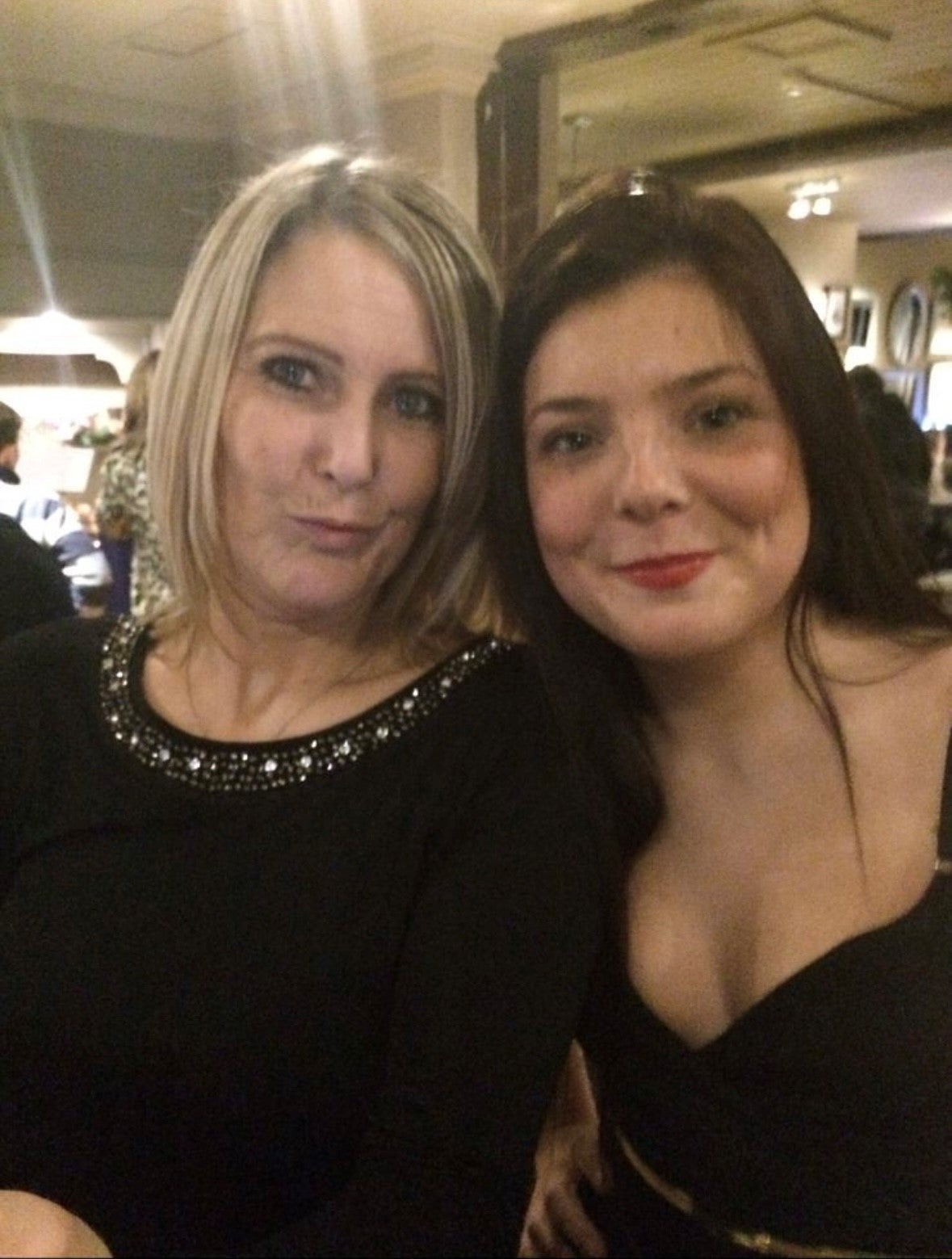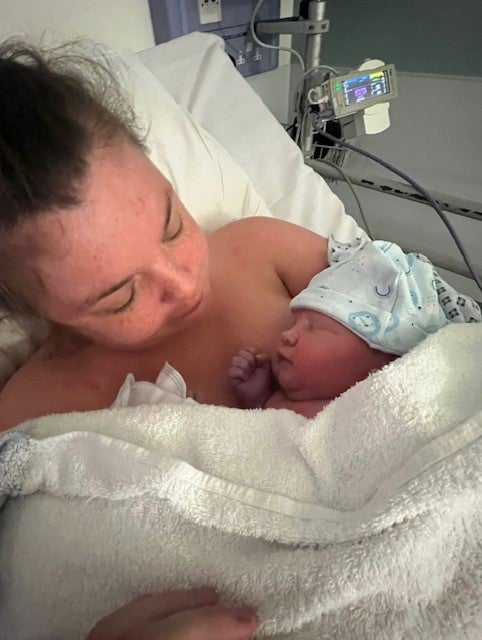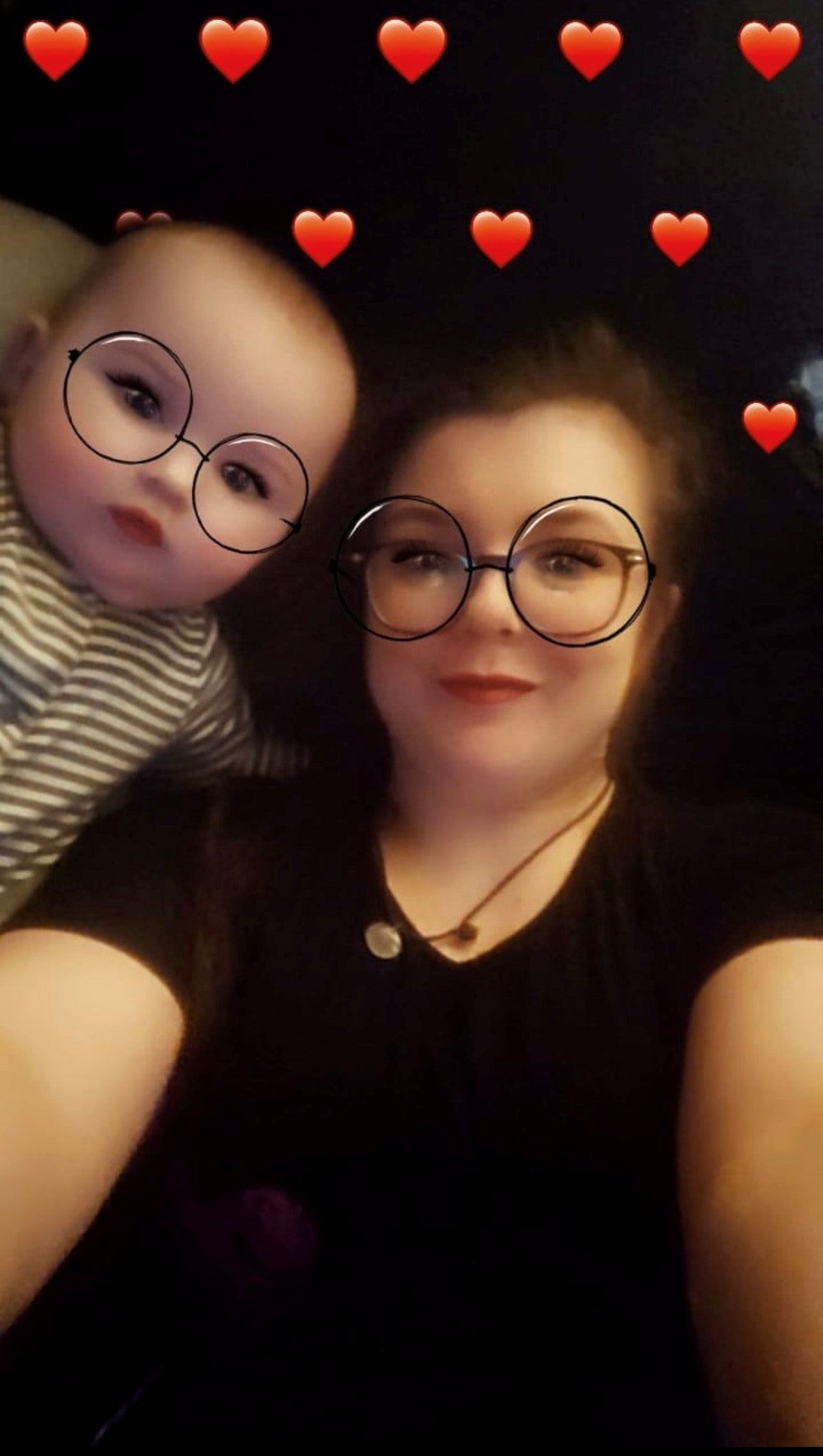This website uses cookies so that we can provide you with the best user experience possible. Cookie information is stored in your browser and performs functions such as recognising you when you return to our website and helping our team to understand which sections of the website you find most interesting and useful.
A young epileptic mum died suddenly of a rare and unexplained phenomenon just feet away from her newborn son’s cot.
Daniella Jane, 31, was found dead in bed on January 24 2024 by her partner Reggie, 29, near their now nine-month-old son Ronnie in his cot.
Her mother, Kerry Cook, 51, from Essex, received the results of Daniella’s post-mortem examination which found she died of sudden unexpected death in epilepsy – SUDEP – a term used to describe cases where there is no clear reason why a person with epilepsy has died, according to the charity Epilepsy Action.
Kerry said she had only learned about SUDEP a few months before her daughter died, despite having raised two daughters with epilepsy and visiting many hospitals over the decades.
Had she known about SUDEP, which kills between 500 and 600 people in the UK a year, according to the charity SUDEP Action, Kerry said she would have been more present and supportive for Daniella – who was diagnosed with epilepsy at the age of nine and had up to 30 seizures a month.
Kerry’s younger daughter Georgia, 26, also has epilepsy and fears she could suffer the same fate as her sister.

Kerry has launched a petition on Change.org calling for people who are diagnosed with epilepsy to be automatically provided with information about the risks of SUDEP.
“Both of my daughters got epilepsy, one of them had it for 21 years and my other daughter’s had it for 13 years,” Kerry said.
“In all that time, I had heard of the word SUDEP but never had anyone explain it to me or what risks were involved.
“Then on the 24th of January this year, I got a phone call at 8.20am telling me that my daughter had passed away.
“If I had known the dangers, I would have gone and moved in with my daughter.
“All of the ifs and buts have tormented me greatly, but I just wish that someone would have highlighted the severity of the situation.
“Even the funeral home had never heard of SUDEP.”
Daniella was nine when she had her first seizure.
Over the next few years, Daniella had seizures 20 or 30 times a month, often badly injuring herself in the process.

She tried different medication, which sometimes helped reduce the number of seizures for a while, but they soon returned.
At the age of 17, Daniella did not want the condition to govern her life and decided to move into her own one-bedroom flat in Romford.
She worked several jobs, including as a teaching assistant and bartender, but each time her epilepsy got in the way and she was forced to quit.
Then when Daniella became pregnant in 2022, her seizures intensified and doctors advised her to have a Caesarean section for fear she could have complications giving birth.
After welcoming Ronnie on July 23, Kerry and Reggie kept a close eye on Daniella whose seizures were “out of control”.
“She went home and her partner Reggie did everything he could to look after her, but obviously bills have to get paid so he could not be with her all the time,” said Kerry.
Daniella contacted Queen’s Hospital in Romford and enquired about having genetic testing in the hope of shedding light on why her fits were getting worse.
A few weeks later, she received a letter saying there was no need for genetic testing and that because her seizures were uncontrolled, meaning medication did not alleviate them, Daniella was at risk of SUDEP.
Until this point, Kerry had never heard of sudden unexpected death in epilepsy.

While it is extremely rare, the Epilepsy Foundation lists SUDEP as the leading cause of death in people with uncontrolled seizures.
Kerry began researching online in September 2023 and suggested Daniella speak to a specialist about the condition which most often occurs at night or during sleep.
Two weeks before Daniella was scheduled to have a hospital appointment, on January 24 2024, Kerry received the devastating phone call from Reggie.
“On the 23rd of January her partner went to work to do a nightshift, and Daniella was alone with the baby,” said Kerry.
“What I’ve been told now is that my daughter’s brain just completely switched off.”
Kerry said her daughter was wearing a seizure detection device, a type of smart watch, at the time of her death but it was broken.
On April 20, Kerry received her daughter’s post-mortem examination report which said “examination of the brain unequivocally confirms SUDEP as the cause of death in this instance”.
Kerry now fears her other daughter Georgia, who lives a street away from Kerry, could also be at risk.
She has launched a petition on Change.org calling for people diagnosed with epilepsy to be informed about the “risks and dangers” of SUDEP.
“From the very second someone is diagnosed with epilepsy, they should be sat down with a specialist to explain the risks and if there is anything they can do to prevent (SUDEP),” said Kerry.
“You’ve got to learn what the best way is to manage your seizures by speaking to doctors and seeking support.
“When my daughter Daniella passed, I donated my daughter’s brain to the Epilepsy Society for them to do research and see if they could find any answers.
“Why did she have SUDEP? Why did her brain just switch off?”
Rebekah Smith, deputy chief executive at Epilepsy Action, said: “We know 87% of people with epilepsy have told us their condition has had a negative impact on their mental health.
“This in turn can prevent them from seeking the support they need to manage their condition safely and look after themselves – all which can increase the risk of sudden unexpected death in epilepsy (SUDEP).
“SUDEP is rare, affecting around one in every 1,000 adults with epilepsy each year. A person’s individual level of risk will depend on how well controlled their seizures are, but we know that there are some factors which can increase the risks such as not taking epilepsy medication as prescribed.”
To support Kerry’s campaign, click here.



 Africana55 Radio
Africana55 Radio 

